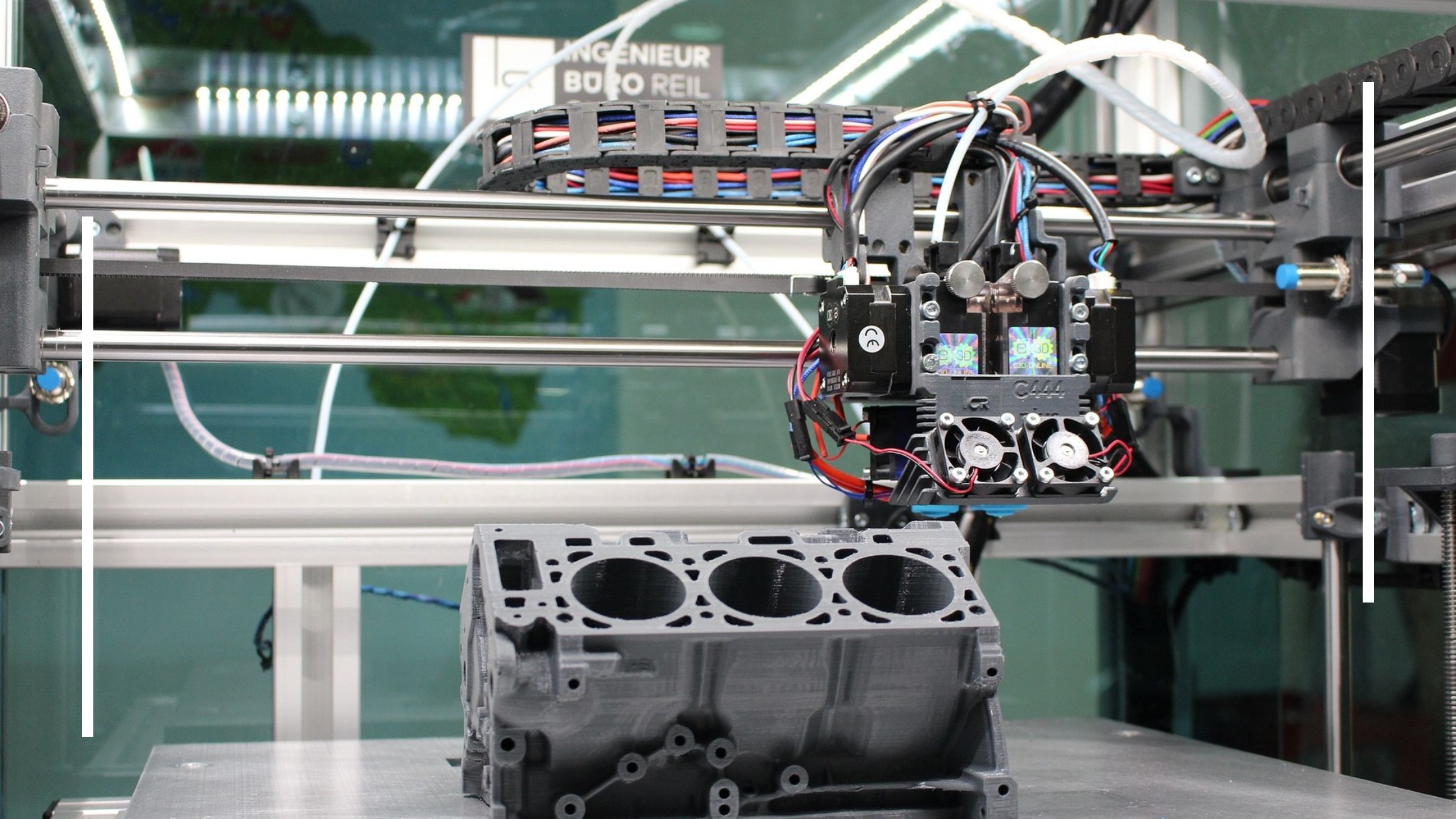3D Printing for Production: The Future of Manufacturing
Services & Trainings TE Services & TrainingsPosted by TEAdmin on 2025-03-09 10:25:12 |
Share: Facebook | Twitter | Whatsapp | Linkedin Visits: 74

Transforming Prototyping into Mass Production
3D Printing, also known as Additive Manufacturing (AM), has long been associated with prototyping. However, TE Connectivity’s 3D Printing for Production (3D4P) is revolutionizing the industry by making AM viable for large-scale manufacturing. With advancements in materials and techniques, 3D4P enables the production of complex aerospace and defense components, such as connectors, clamps, and fiber-optic breakouts, without the constraints of traditional manufacturing.
Seamless Production with Maximum Flexibility
Unlike conventional methods that require CNC machining, injection molding, or investment casting, 3D4P uses a tool-free, direct-manufacturing approach. By layering advanced resins like Flame, Smoke, and Toxicity (FST) photopolymers, TE achieves intricate designs with exceptional precision. Additionally, high-speed production, post-processing, and quality checks can be integrated within a single manufacturing cell, reducing time and cost.
Key Benefits of 3D4P
- No minimum order requirements – ideal for small-batch production.
- No downtime on production lines – continuous and efficient manufacturing.
- Rapid modifications – design adjustments take minutes, not weeks.
- Cost-effective – eliminates the need for inventory and tooling.
- Faster time to market – reduces production and assembly time.
Ideal Applications
3D4P is perfect for complex parts that are difficult to mold or machine, low-volume production runs, and fast-tracked development cycles. It also enables manufacturers to start with 3D printing and transition to molds later as demand increases.
With over 30 years of expertise in 3D printing, TE Connectivity’s 3D4P technology offers a game-changing solution for industries looking to embrace the future of flexible, cost-effective production.
Search
Categories
Recent News
- Messi's Return to Roots: Newell's Daring Vision for 2027
- Hyderabad's Crime Rate Drops, But Challenges Remain
- Ferry Service Expansion: A Boost for Tourism in Tamil Nadu
- 'Culture Clash' in Adelaide: Racial Tensions Rise Over Park Usage
- Peace Talks in Abu Dhabi: A Glimmer of Hope Amidst War's Shadow
- Global Risks 2026: Navigating a Decade of Uncertainty
- Chaos in Parliament: PM Modi's Address Postponed Amid Opposition Uproar
- Turkish Airlines Flight Makes Emergency Landing in Kolkata
Popular News
- Navigating IPO Market Dynamics Amid Volatility and Regulatory Changes
- Massive Worldwide Microsoft Outage Disrupts Multiple Sectors
- Panjapur Bus Stand to Reshape TNSTC Routes
- తెలుగుదేశం పార్టీ - పేదరికాన్ని నిర్మూలించడంలో వాగ్దానం
- Universities Embrace Remote Learning Technologies Amidst Ongoing Pandemic